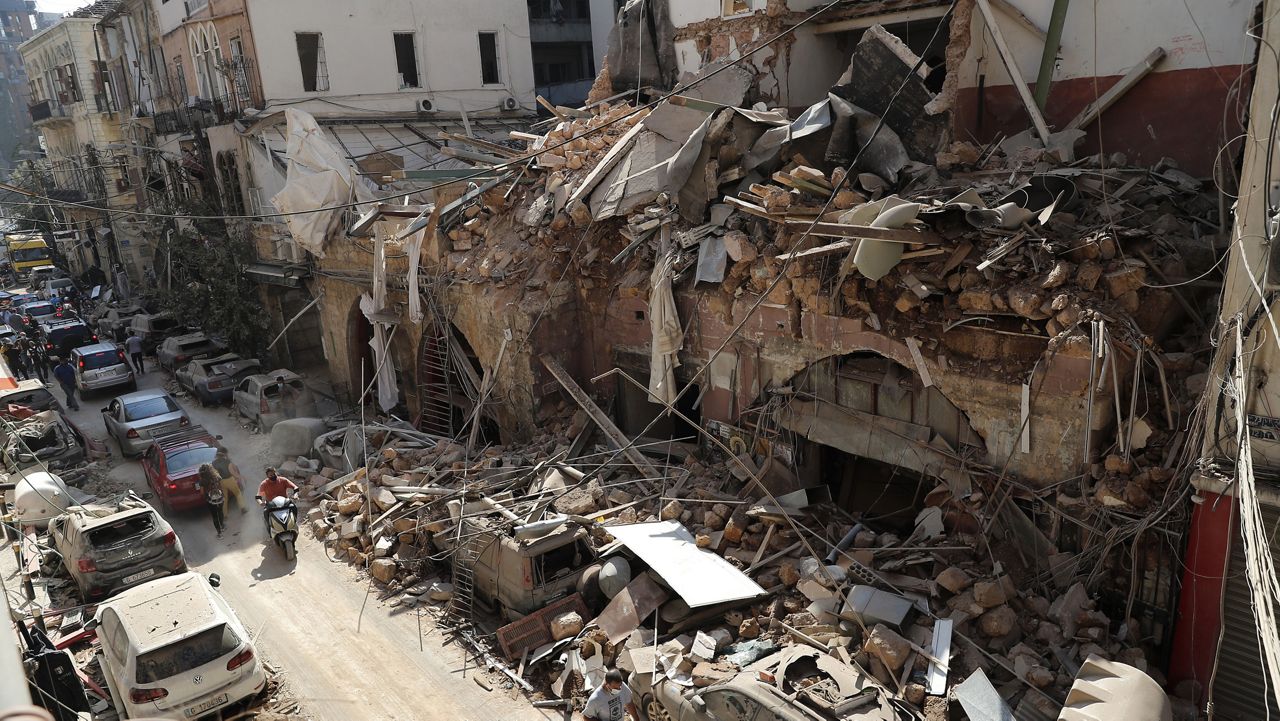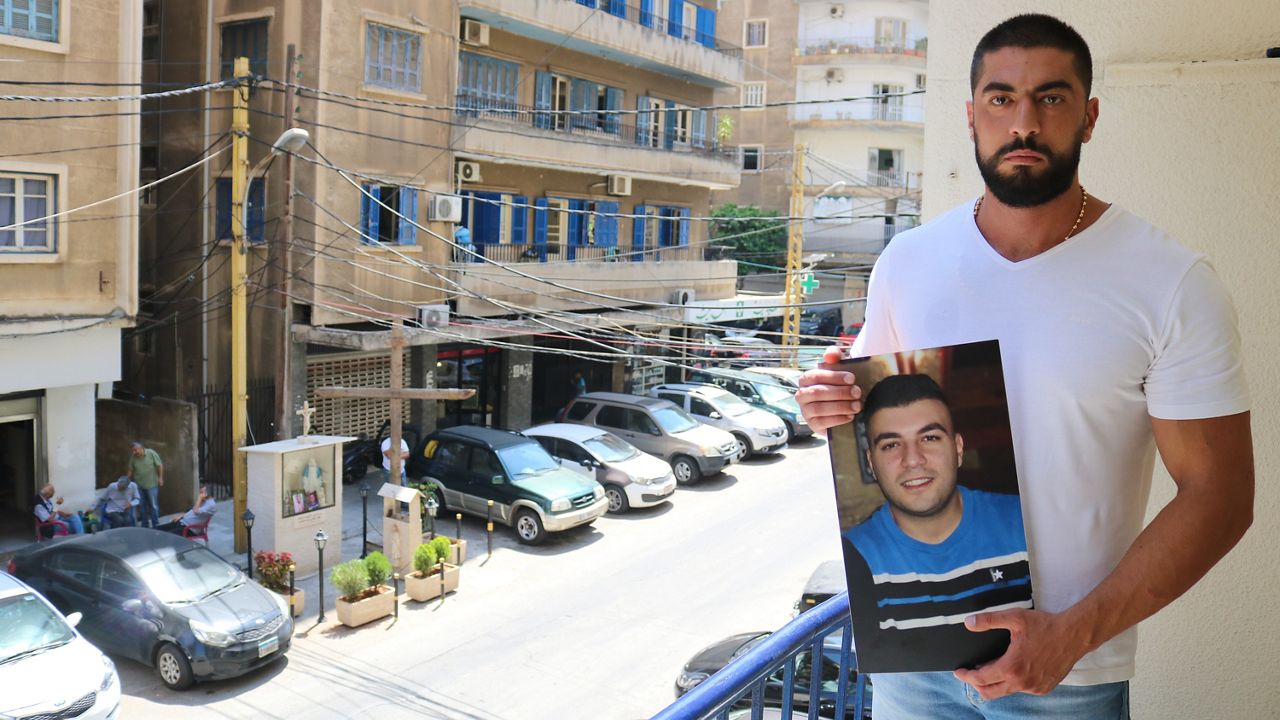BEIRUT, Lebanon – Three Buffalo women woke up, grabbed their phones, and felt their hearts drop.
It was Aug. 4, 2020 – a day now etched as one of the worst in their lives.
Sisters Kiana and Alexis Saadeh, and their cousin Amanda Ramia, were inundated with fiery footage: A massive explosion had just gone off in their home country of Lebanon. And they were seeking answers. Was a war starting? Were their loved ones alive?
“I didn’t hear it from my dad, so I didn't know if he was OK,” said Kiana Saadeh, now a 26-year-old University at Buffalo medical resident. “I didn't hear it from one specific person, I just saw it online. Nobody texted me. So, it was this moment of, like, OK, who is it going to be?”
The blast ripped through the capital of Beirut – killing 218 people and injuring 7,000. It left 300,000 people displaced and $475 million in infrastructure damages.

Investigators say Lebanese leaders allowed 2,750 tons of ammonium nitrate to be unsafely stored at the Beirut port. So, when a fire started at an adjacent warehouse, the flames reached the nitrate – sparking one of the largest non-nuclear explosions in world history.
The Saadeh sisters, who grew up in Lebanon, and Ramia, the daughter of Lebanese immigrants, felt hopeless. They watched online as their peers carried bodies to hospitals, gave blood and began rebuilding their capital – all with little help from the Lebanese government.
News reports said volunteers and nongovernmental agencies led Lebanon’s emergency response, while leaders were nowhere to be found. And no senior official has since been held accountable.
“The government did receive a lot of funds from other countries … and we didn’t see anything being provided,” said Alexis Saadeh, 23, a University at Buffalo pharmacy graduate. “We started realizing if the government was going to leave its people, then we should try to take over.”
And they did. They started Young Adults Unite for Lebanon, a fundraiser for food, medicine, heat and school supplies.
It’s been a lifeline for those trapped in Lebanon, a country that’s in the midst of a humanitarian catastrophe far beyond the blast.
The tiny Middle Eastern country, which was once prized for its rich history, renowned cuisine, entertaining nightlife and picturesque beaches along the Mediterranean Sea, is experiencing an economic collapse. The World Bank says it's one of the worst financial meltdowns in modern-world history. Experts also say it was caused by government corruption and mismanagement.
For decades, Lebanon’s ruling elite borrowed money from banks to pay off debt and enriched themselves while driving the country into poverty, according to experts.
By 2019, the economy crashed. Today, more than 80% of the population lives below the poverty line, according to the United Nations. The currency has continued to plunge, losing 90% percent of its value. People still cannot withdraw money from their bank accounts.
If a person is lucky enough to find a job, the average monthly salary is a mere $40.
In an interview with Spectrum News 1, the family of Joe Bou Saab said his dreams died with the Beirut blast. After he couldn’t find a job after college, he became a firefighter and was called to the port to put out the fire that ultimately triggered the explosion.
“He was dreaming to finish his job here and go to another country to have a new passport, and have a family,” said his brother, Peter Bou Saab, who blames the Lebanese government for the death. “They killed his hopes by killing him.”

A 2022 UNICEF report showed more Lebanese are leaving school to help their families survive. The agency found more than 40% of youth reduced spending on education to buy food, medicine and necessities. More than 30% dropped out altogether.
For Ramia and the Saadehs, that’s caused guilt.
Although the Saadehs immigrated to the U.S. to pursue their dreams in Buffalo, that’s no longer possible for many Lebanese. More than 60% of Lebanese want to leave their country, according to a Gallup Poll, but the government has made it harder to secure passports and visas.
That has inspired Ramia and the Saadehs to add another layer to their fundraiser: paying for tuition. The goal is to support a generation that can one day bring Lebanon back to its glory.
“I was just recently in Lebanon," said Ramia, 36, a curriculum and instructional designer at the University at Buffalo. "And while many of the people there are struggling simply to put food on their own table, that did not stop them from constantly welcoming me into their homes and really strive to offer you whatever they have."
In the video above, Spectrum News 1 producer Lisa Khoury Gadelrab travels to Lebanon to take a deeper look at the crisis. She interviews blast victims and youth with dreams. She also hears more from Ramia and the Saadehs about their passion project.







